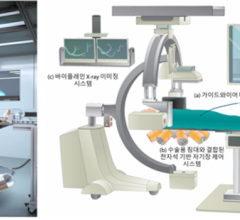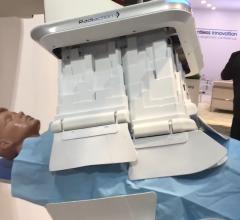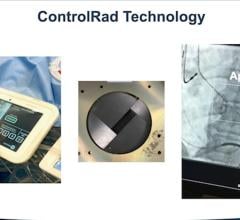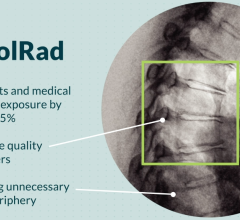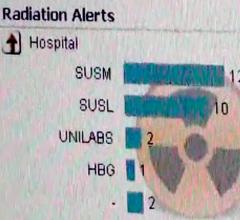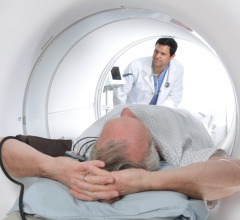The silence is deafening. And since radiology associations, physician groups and vendors have yet to publicly respond to the elephant in the room, I offer the following in hopes we can get the conversation started...
On Tuesday, January 27, Consumer Reports (CR) posted an article and video that, in a not entirely subtle way, accused physicians and the radiology community of ignorance, negligence and/or malfeasance. The gist of CR’s article is that many physicians are sending patients for CT Scans they don’t really need, either to cover a specific part of their anatomy from lawsuits or to pay the mortgages on their pricey CT scanners. And the cherry on top is approximately 15,000 patients receiving CT scans will die from being exposed to high doses of cancer-causing radiation.
Haven’t we danced this dance before?!
The CR piece was, in the very least, irresponsible – igniting yet another media firestorm that will, no doubt, result in unnecessary and unwarranted consumer panic. CR didn’t appear to interview representatives from leading radiology associations, radiology groups or – God forbid – technology vendors for their perspectives on this subject. More disturbing perhaps, one would think the mainstream media would do its homework before parroting Consumer Reports-speak. Not the case. “If it bleeds, it leads baby!”
Nowhere in the article was mention of the number of lives saved by CT scans annually. Nowhere in the article was mention of training programs offered by educational groups, associations, healthcare media, and technology vendors. Nowhere in the article was mention of how said vendors are committing considerable resources to develop transformational dose-lowering technology and dose monitoring software/programs. Might mention of this steal the thunder of CR’s article or subsequent media coverage?
In fairness to Consumer Reports and to healthcare consumers, yes, there have been abuses. Yes, some CT scans have been prescribed for less than altruistic reasons. Yes, more needs to be done to educate healthcare providers about the dangers of radiation dose. Yes, radiation dose is a valid concern that healthcare consumers need to be aware of and discuss with their care providers. My issue is with how this was communicated by both CR and the mainstream media. If you’re going to “educate” – then educate. Don’t sensationalize. Call me loco, but shouldn’t the responsibility of educating healthcare consumers about radiation dose be the responsibility of healthcare professionals, rather than consumer media, who apparently still have much to learn?
Cowboys, let your collective voices be heard.
Radiation Dose Articles and Resources from Imaging Technology News and ITNonline.com
CT Dose: The Need For Management
Comparison Chart: CT Dose Management
Recording and Managing Radiation Dose
Comparison Chart: Radiation Dose Management
White Paper: Utilization of a Dose Management Solution to Lower Radiation in Medical Imaging
White Paper: GE Healthcare's DoseWatch
White Paper: GE Healthcare: Delivering the Right Dose
White Paper: Visualize Your Way to Safer Imaging
Webinar: Digital Subtraction Angiography With Significantly Reduced Radiation Dose
Pediatric Fluoroscopy Webinar — Important Concepts to Lower Dose
Reducing Patient Radiation Dose to Meet the Regulatory Need
UC Davis Papers Advocate New CT Dose Management Strategies
Radiation: Out of Sight, Too Often Out of Mind
Managing Dose: Radiation Exposure on the Rise
Image Wisely Launches New Fluoroscopy Initiative
New Image Wisely Radiation Safety Case on CT Brain Perfusion Now Available
Lifetime Cancer Risk from Heart Imaging Low for Most Children, but Rises with More Complex Tests
Joint Commission Calls for Use of Radiation Dose Monitoring
Houston Healthcare Makes CT Exams Safer With Toshiba’s PROTECT Program, Iterative Reconstruction
Joint Commission Releases Imaging Standards
Putting the Focus on Radiation Dose
Sectra Expands Hospital’s Radiation Dose Tracking Ability
Bayer Launches New Version of Radimetrics Enterprise Platform
Philips Launches DoseWise Portal for Radiation Dose Management
FDA Clears Siemens’ Third-generation Iterative Reconstruction CT Software
Sapheneia and Scannerside Partner to Offer Dose Tracking, Dose Reduction in Radiology
Medic Vision to Showcase Safe CT Enterprise at RSNA 2014
Key Imaging Technology Trends to Watch for at RSNA 2014
Infinitt to Feature Dose M 2.0 Web-based Dose Management Software at RSNA 2014
PACSHealth Announces Dell to Host and Distribute Radiation Dose Monitoring Solution
New KLAS Report Examines Which Dose Monitoring Solutions Providers Are Considering



 May 20, 2025
May 20, 2025 

